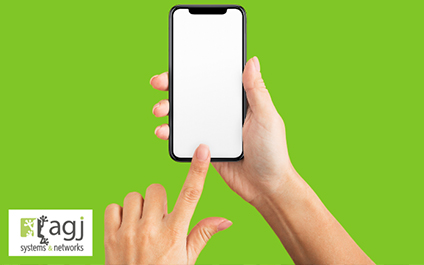In today's fast-paced world, smartphones have become an integral part of our daily lives. They store our personal conversations, crucial financial information, and treasured memories in the form of photos, audio recordings, and videos. However, this dependency on smartphones makes them an attractive target for cybercriminals, and their tactics are becoming increasingly sophisticated.
Moreover, when employees use personal phones for business purposes, they may inadvertently expose company data to security risks. This comprehensive guide offers valuable tips to protect your smartphone and sheds light on the potential dangers of using personal devices for work-related tasks.
Maintain physical possession of your phone
- If your phone is lost or stolen, it can be used to access your financial accounts, steal your identity, or even impersonate you on social media. Always keep your phone with you to prevent unauthorized access. This might seem obvious, but many people casually leave their phones on tables at coffee shops or on their office desks. It only takes a moment for a thief to grab your device and make off with it.
Secure your phone
- Set a strong, unique password or use biometric authentication, such as fingerprint or facial recognition, to protect your device. Remember, the longer and more complex the password, the more secure your phone will be. In addition, keep your phone's operating system up-to-date by installing updates as soon as they become available. These updates often include critical security patches that protect your device from known vulnerabilities.
- Disable Bluetooth when not in use, and avoid using it in crowded areas, as hackers can exploit Bluetooth connections to access your device. Connect only to encrypted Wi-Fi networks that require a password and disable automatic connection to new networks. This will help prevent your phone from connecting to unsecured or malicious Wi-Fi hotspots.
- Enable remote tracking and security features: Use Mobile Device Management (MDM) software or built-in features to enable remote geo-tracking, lock, and data wipe functionalities. These can help you locate, lock, or erase your phone's data if it is lost or stolen. However, be cautious that geo-tracking may allow others to track your location. Many smartphones come with built-in features like "Find My iPhone" or "Find My Device" that can help you locate and remotely manage your phone in case of theft or loss. Ensure that these features are enabled and configured properly.
Safeguard your data
- Regularly back up your phone's data to an external storage device or a cloud service. This ensures that you have a copy of your important information even if your phone is lost, stolen, or damaged. Avoid storing sensitive information, such as passwords, PINs, or confidential documents, on your device. If you must store sensitive information, use a secure app that encrypts the data.
- Refrain from accessing online banking services in public or crowded places to prevent shoulder surfing, where a nearby person may be able to see your screen and obtain your login credentials. Also, avoid using public Wi-Fi networks for financial transactions or accessing sensitive information, as these networks are often unsecured and can be easily exploited by hackers.
Use apps cautiously
- Carefully review the permissions requested by apps and only download them from trusted sources, such as the official app store for your device. Be wary of apps that request excessive permissions or access to sensitive information without a clear reason. If an app requests access to your contacts, calls, photos, or location without a valid explanation, consider finding an alternative or denying the request.
- Always keep your apps up-to-date, as developers regularly release updates to fix security vulnerabilities and improve performance. In addition, uninstall any apps you no longer use, as outdated or unused apps can pose a security risk.
Be mindful of your phone usage
- Stick to trusted websites and apps for downloads and never obtain content from unverified sources. Downloading from untrusted sources can expose your device to malware or other security threats. Turn off GPS when not needed to avoid location tracking, which can compromise your privacy. Always log out of websites after use, especially those that require you to enter personal or financial information, to prevent unauthorized access to your accounts.
- Exercise caution when opening emails, as hackers can create authentic-looking messages that may contain malicious code or phishing links. One false click could grant them access to your personal data or infect your device with malware. Be especially cautious with unexpected emails, even if they appear to be from a familiar sender, as their account could have been compromised.
Address the risks of using personal phones for business
- Companies should implement a Bring Your Own Device (BYOD) policy that outlines the acceptable use of personal devices for work, requires employees to install MDM software, and enforces strong security measures such as encryption and multi-factor authentication. Providing employees with guidelines on how to securely use their personal devices for work can significantly reduce the risks associated with sensitive company data being exposed or compromised.
- In addition to implementing a BYOD policy, companies should also invest in employee education and training on cybersecurity best practices. This may include regular workshops or training sessions on how to identify and avoid phishing attempts, create strong passwords, and safely use mobile devices for work purposes. Companies should also encourage employees to report any suspicious activity or potential security threats to the IT department immediately.
Consider using a separate device for work
- If possible, use a separate smartphone for work-related tasks to minimize the risks associated with mixing personal and professional data. This can help protect your personal information from being accessed if your work device is compromised, and vice versa. Additionally, having a dedicated work device can help you maintain a healthy work-life balance by keeping your professional and personal communications separate.
By following these tips, you can keep your smartphone secure and minimize the risks associated with using personal devices for business matters. Stay vigilant and enjoy the many benefits of your smartphone without compromising your privacy or company data. As technology continues to evolve and cyber threats become more sophisticated, it is crucial to stay informed about the latest security best practices and consistently review and update your device's security settings.
Our IT professionals are here to help you with all of your security needs. Contact us today to see how we can help you.



